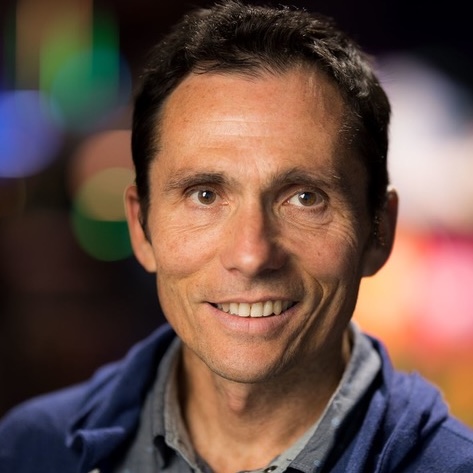For decades, the tech world has operated under a simple premise: faster is better, and scale is everything. From sprawling data centers to the ever-expanding reach of cloud platforms, the digital backbone of our lives keeps growing—quietly consuming energy, water, and resources at a pace most users never stop to consider. The industry’s obsession with performance and innovation has often pushed environmental costs out of frame, leaving sustainability to play catch-up while digital infrastructure surges ahead.
Pascal Joly has seen this tension firsthand. With years spent building and managing digital products at giants like Hewlett Packard and Quali, he watched as efficiency and speed took precedence over impact—until the numbers became impossible to ignore. Today, Joly is focused on a different metric: how the systems we depend on can be re-engineered to account for their environmental footprint from day one. As lead instructor of Terra.do’s Sustainable Cloud Engineering course, he’s making the case that sustainability is no longer a bonus or a PR play—it’s a basic competency for anyone working in tech.
In the following interview, Joly cuts through industry myth and corporate spin, laying out why cloud sustainability matters right now, why every engineer and architect has a stake in it, and how rethinking digital infrastructure is both a climate imperative and a professional obligation.

Interview with Pascal Joly: Building a Greener Digital Future, One System at a Time
Pascal, you’ve had a long career in digital product development. What sparked your shift toward sustainability in tech?
Over my years working at Hewlett Packard and Quali, I was responsible for building digital services and productsI saw how much digital systems consumed on prem and in the cloud, and how little visibility there was into that impact. My pivot came from both professional observation and personal conviction: if we want to build for the future, sustainability can’t be an afterthought. It has to be part of the design from the start, and considered at every step of the digital product and service lifecycle.
You’re leading Terra.do’s Sustainable Cloud Engineering course. What makes this topic urgent right now?
Cloud systems are foundational to nearly everything we do online. But they also come with a rising environmental cost. As adoption accelerates with technologies such as GenAI or Crypto currency, so does energy and water use. This course is about empowering tech professionals to make practical, impactful changes, without sacrificing performance or business outcomes.
What do you think is the biggest misconception about cloud sustainability?
That it’s someone else’s job, like something for the facilities team or just the data center operators. In reality, everyone using, building and deploying digital infrastructure has influence. Your design decisions shape resource use. Sustainability is a team sport!
How does the course balance environmental responsibility with real-world business needs?
We focus on what's measurable and actionable. For example, optimizing architecture to reduce compute waste often results in lower costs and better system performance. We’re not asking people to give up innovation….we’re showing how sustainability can drive the choices we make.
You also co-designed the Sustainable AI course. Why is AI a special challenge in this space?
AI systems, and Generative AI in particular, are incredibly powerful but also compute-intensive. The rise of large models is driving exponential increases in energy use. With Sustainable AI, we help practitioners understand the environmental impact of their models and provide strategies to mitigate it at every stage from data to deployment.
What’s one thing AI teams could start doing today to reduce their footprint?
Begin with sufficiency: ask should we use AI here? Not every problem needs a large model or even AI at all. Then focus on efficiency…optimize your models, train them with cleaner energy when possible, and track emissions like any other key metric.
You’ve trained in everything from machine learning to digital emissions and GHG scope 3 measurement. How does that shape your approach?
It gives me a systems view. I understand both the technical depth and the climate context. I try to connect those dots for others, to demystify the science, ground it in data, and offer realistic paths forward for teams.
What kind of professionals will benefit most from these courses?
Cloud architects, DevOps engineers, AI product leads, and sustainability teams. But really, anyone working in tech who wants to design systems more responsibly. We give people toolkits and practical steps for impact they can start using right away.
What’s your long-term vision for sustainability in digital infrastructure?
That sustainability becomes as embedded in digital development as security or performance. It should be a default consideration, part of every architecture review, every product decision. We’re not there yet, but momentum is building.
What would you say to someone on the fence about joining one of these courses?
If you're in tech and you care about the future, your skills can have a huge impact. You don’t need to be a climate scientist. You just need to be willing to learn and take action to make change happen.
🔗 Learn more about Pascal’s courses on Sustainable Cloud Engineering and Sustainable AI.
Learn more about Pascal’s courses on Sustainable Cloud Engineering and Sustainable AI
Courses are open to professionals at any stage—join a global network building the future of sustainable tech.

